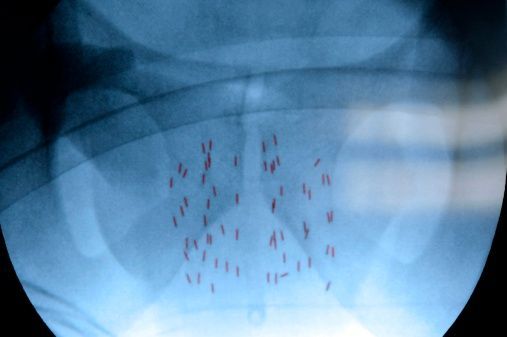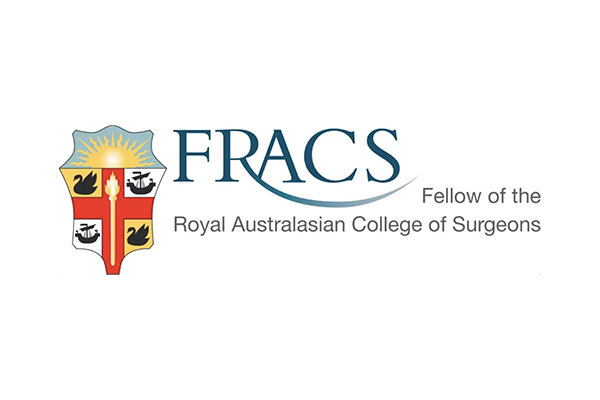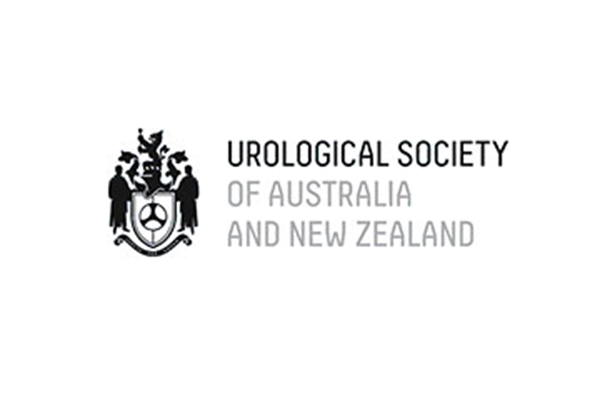Brachytherapy
Brachytherapy (properly known as low-dose rate brachytherapy or LDR brachytherapy) is a day surgery procedure where the surgeon implants small radioactive seeds (smaller than a grain of rice) into the prostate under a general anaesthetic. These deliver radiation to the cancer from inside the prostate. The implanted seeds are small enough that they will not be felt by the patient. Brachytherapy is also referred to as 'interstitial radiation therapy' or 'seed implant therapy'.
Before the seeds are implanted, the patient will have a special ultrasound test of the prostate to plan the appropriate treatment. This is usually a few weeks before the day when the seeds are implanted and is called a "planning study." Needles containing the seeds are then inserted through the skin of the perineum (the area between the scrotum and anus) using transrectal ultrasound guidance. The seeds remain in the prostate and the radioactive material gives off localised radiation for a number of months to destroy the prostate cancer. This procedure allows high doses of radiation in the prostate with minimal contamination of the surrounding organs (bladder/rectum). Most men can resume work and normal activities a few days after the treatment.
Brachytherapy is a very effective and safe way to treat selected prostate cancers. Your urologist will recommend if this is right for you. Long-term results are similar to open surgery when brachytherapy is chosen to treat the correct sort of cancers, typically the slower growing, less aggressive forms of prostate cancer.








